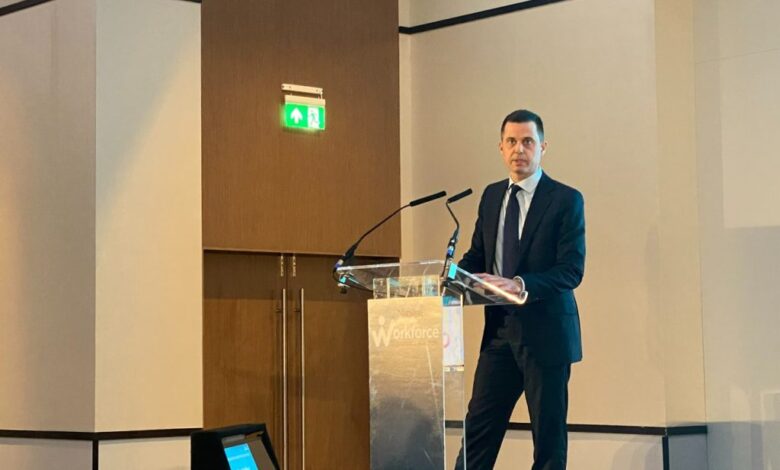Outdated perceptions of nursing ‘must be challenged’

The nursing profession must publicise an image of what a “modern and contemporary nurse does” to challenge old-fashioned perceptions of the profession, the deputy chief nursing officer for England has said.
Professor Mark Radford said today that there needed to be greater consensus about what the role of a nurse is within a multidisciplinary team, to promote a career in nursing to the next generation.
“I think lots of us do want to challenge the public perception that our job role is just to support doctors”
Mark Radford
He discussed issues about nurse recruitment and retention during his keynote speech at the Nursing Times Workforce Summit, being held in London today.
Professor Radford argued that some people do not always understand the remit of the role of a registered nurse.
He said: “There is an enduring image, both within media and the public, that probably plays back to a very rose-tinted and old-fashioned view of what nursing is.
“I think lots of us do want to challenge the public perception that our job role is just to support doctors.”
The role of the nurse today included leading on clinical research, complex treatments and drugs management, noted Professor Radford.
However, he argued that the profession did not always show the public “these aspects of what a modern, contemporary nurse is”.
“I think we have to get that sense right within nursing before we can go out to the public,” he said.
“Otherwise, these enduring images of old-fashioned nursing will still be a dominant factor in what people think nursing is.”
Professor Radford has been appointed to help lead on the delivery of the NHS Long Term Workforce Plan.
He will work as part of a team in the NHS England workforce, training and education directorate focused on delivering the plan.
During his keynote, Professor Radford said the plan was “one of the biggest resets that [nurses] will have in relation to workforce”.
As part of implementing the plan, he advocated for a “reimagining” of the nursing workforce, including plans to train nurses differently.
Professor Radford argued that nurse leaders needed to “reverse engineer” how they were going to train the next generation.
He added: “If want a modern contemporary nurse, working in a completely different way, out in community settings, utilising advanced practice, working with communities in a way that we want to get the best outcomes for patients, defined by what our inputs are, we need to work backwards on that.”
Nursing education was one area that Professor Radford argued needed significant reform, particularly around placement opportunities.
He said: “Placements are going to be mission critical.
“We need to make sure we leverage all of our placement opportunities across the whole life course, but also importantly across every sector.”
Professor Radford said student nurses should have opportunities to train in a variety of settings, including nursing homes, community settings, general practice and to work with homeless and outreach services.
In addition, he suggested that adult student nurses should have opportunities to experience mental health placements, and vice versa.
“I believe there is more than enough placement opportunity out there, the issue is how [we are] going to do that,” Professor Radford said.
Similarly, Professor Radford noted challenges around expanding the number of nurse educators, who will be needed to train the next generation of nurses.
“We have phenomenal universities, over 70 of them training nurses and midwives across this country,” he said.
“But actually, one of the real challenges they have is a lack of people who want to go into training and education.”
Professor Radford said nurse leaders needed “to start thinking and working with the university sector” to bring forward the future nursing educator workforce.
“I know there’s a lot of work going on in relation to how we develop educators because this is going to be an important part of how we grow, in unison, [at] both placement level and university level.”






